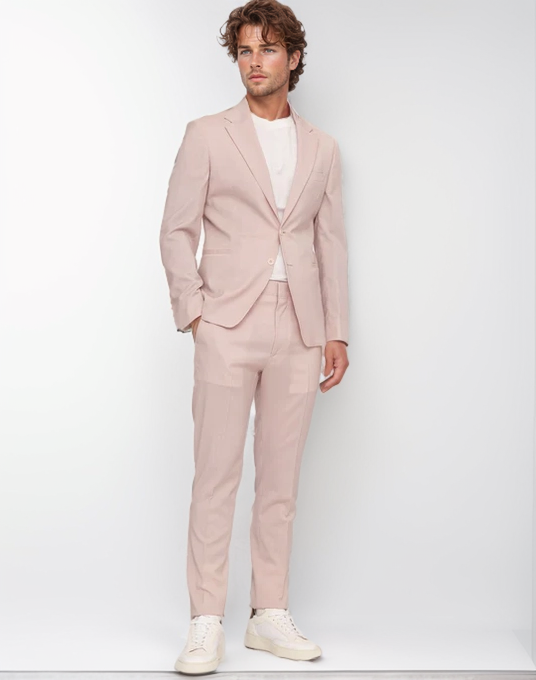
How Much Is Too Much? Evaluating Tailored Suit Costs
Tailored suits are a symbol of style, quality, and sophistication. However, the cost of a tailored suit can vary significantly, leading many to wonder when a price is too high. Understanding what factors contribute to the cost of a tailored suit and evaluating the value of these factors can help you make a well-informed decision. In this guide, we will delve into what you should consider when determining if the cost of a tailored suit is justified.
The Value of a Tailored Suit
H2: Why Invest in a Tailored Suit?
A tailored suit offers several advantages over off-the-rack options:
Perfect Fit: Tailored suits are custom-made to fit your specific measurements, providing a superior fit that enhances comfort and style.
High-Quality Materials: Tailors often use premium fabrics that contribute to the durability and elegance of the suit.
Unique Design: Custom suits can be personalized with unique details, reflecting your personal style and preferences.
Factors Influencing Tailored Suit Costs
H2: Fabric Quality
1. Type of Fabric
Premium Fabrics: High-quality materials such as wool, cashmere, and silk can significantly increase the cost of a tailored suit. These fabrics are chosen for their durability, breathability, and luxurious feel.
Fabric Origin: Fabrics from renowned regions or brands, such as Italian or English textiles, are often more expensive due to their high standards and reputation.
2. Fabric Weight and Composition
Weight: Heavier fabrics used for winter suits generally cost more due to the additional material required.
Composition: Blends of natural and synthetic fibers can affect the price. Pure natural fibers are typically more costly but offer better quality and comfort.
H2: Customization and Design
1. Suit Style
Single vs. Double-Breasted: Double-breasted suits are often more expensive than single-breasted ones due to their complex design and additional fabric.
Design Features: Additional features like peak lapels, functional buttonholes, and detailed pocket designs can increase the cost of a suit.
2. Personalization
Unique Details: Custom elements such as monograms, custom linings, and personalized button choices add to the price. These details make the suit uniquely yours but come with an additional cost.
Fit Adjustments: Extensive adjustments to achieve the perfect fit can add to the cost. More fittings and alterations generally mean a higher price.
H2: Tailoring Expertise
1. Tailor’s Experience
Skill Level: Experienced and highly skilled tailors often charge more for their services due to their expertise and reputation.
Bespoke vs. Made-to-Measure: Bespoke tailoring, which involves multiple fittings and a high degree of customization, is typically more expensive than made-to-measure suits.
2. Brand Reputation
High-End Brands: Suits from prestigious brands or designers are priced higher due to their brand reputation and the quality associated with their name.
Tailoring Houses: Established tailoring houses with a long history in fashion often command premium prices for their services.
H2: Construction and Craftsmanship
1. Suit Construction
Handmade vs. Machine-Made: Handmade suits are generally more expensive due to the time and skill required. Machine-made suits are less costly but may not offer the same level of detail and quality.
Internal Construction: Features like full canvassing or hand-stitched seams contribute to the durability and fit of the suit, affecting the cost.
2. Craftsmanship
Attention to Detail: High-quality craftsmanship involves meticulous work, including precise stitching and finishing. This level of detail can increase the price of a tailored suit.
H2: Additional Costs
1. Accessories and Extras
Additional Items: Accessories such as custom shirts, ties, and pocket squares can add to the total cost of the suit.
Alterations: While basic alterations are often included, extensive changes or additional fittings may incur extra charges.
2. Delivery and Shipping
International Shipping: If you’re ordering a suit from an international tailor, shipping and customs fees can add to the overall cost. Be sure to account for these expenses when budgeting.
Determining If the Cost is Justified
H2: Assessing Value for Money
To determine if the cost of a tailored suit is justified, consider the following:
Quality vs. Price: Compare the quality of materials, craftsmanship, and customization options against the price. Ensure that the suit’s features align with the cost.
Tailor’s Reputation: Research the tailor’s reputation and reviews. A higher price may be warranted if the tailor is renowned for exceptional quality and service.
Personal Budget: Evaluate your budget and how the suit fits within it. While a tailored suit is a significant investment, ensure it offers value for your money.
 English
English  Deutsch
Deutsch  Español
Español  Français
Français  Português
Português  日本語
日本語 




